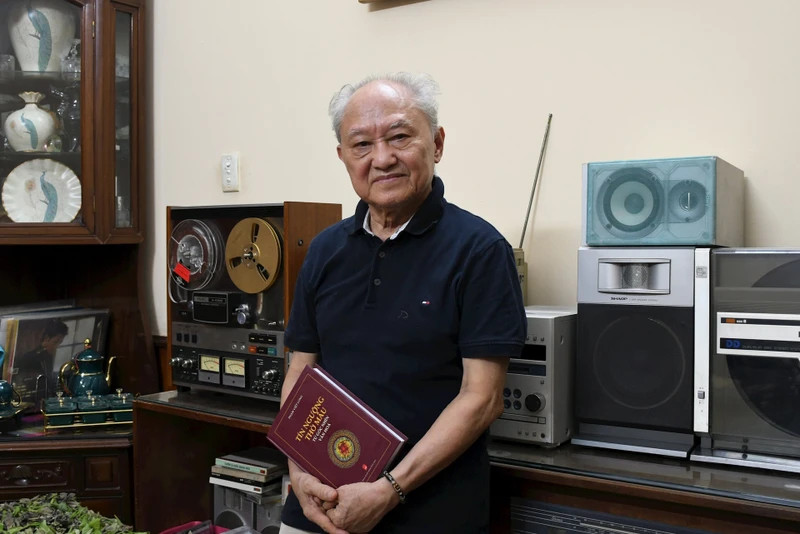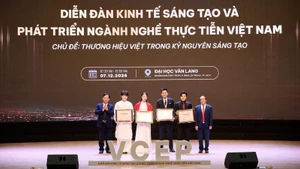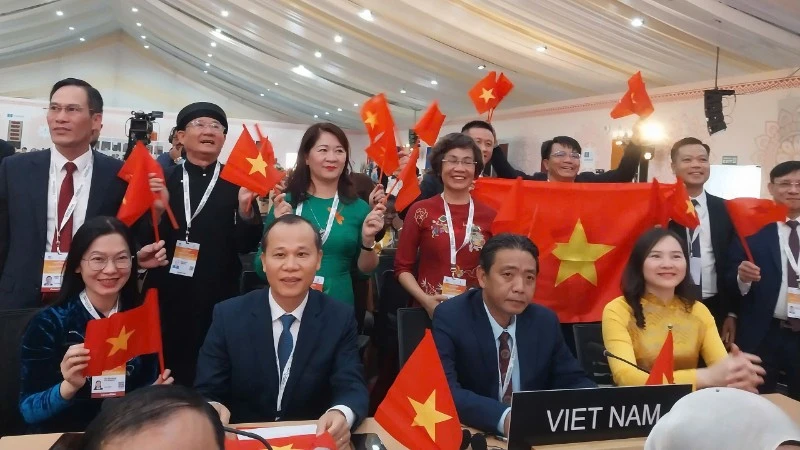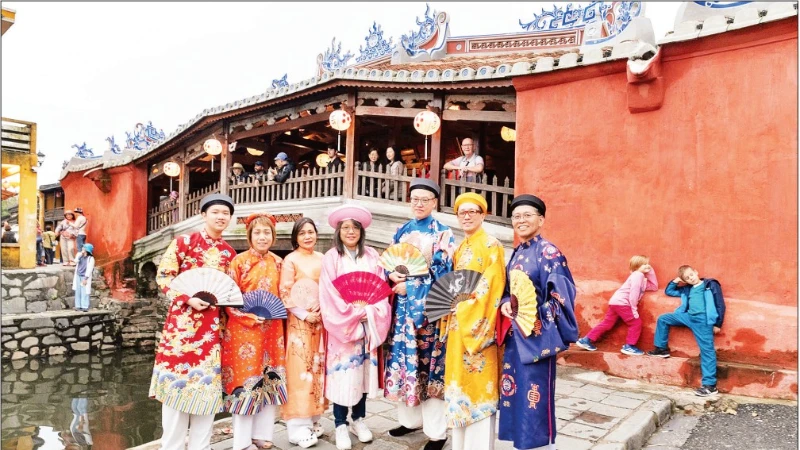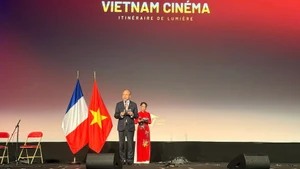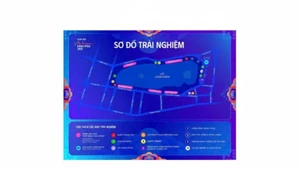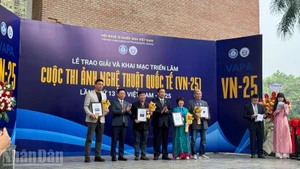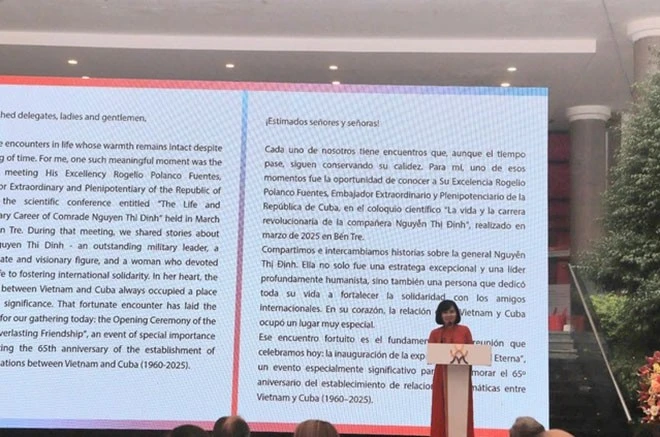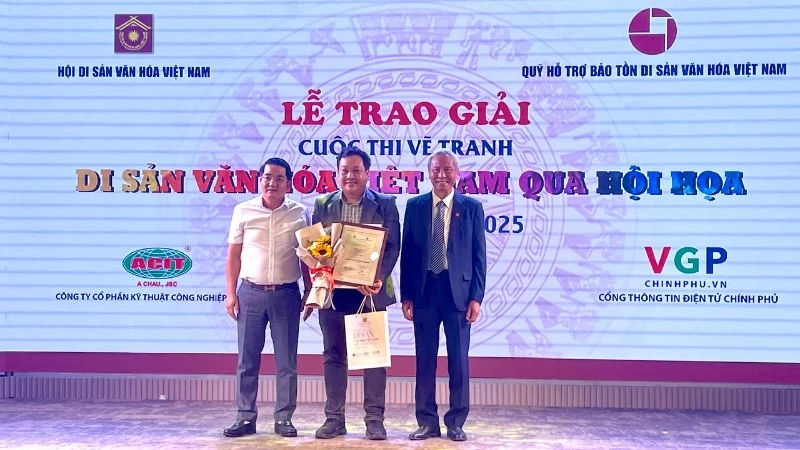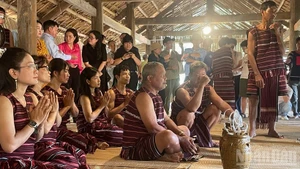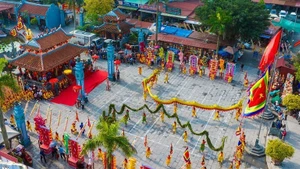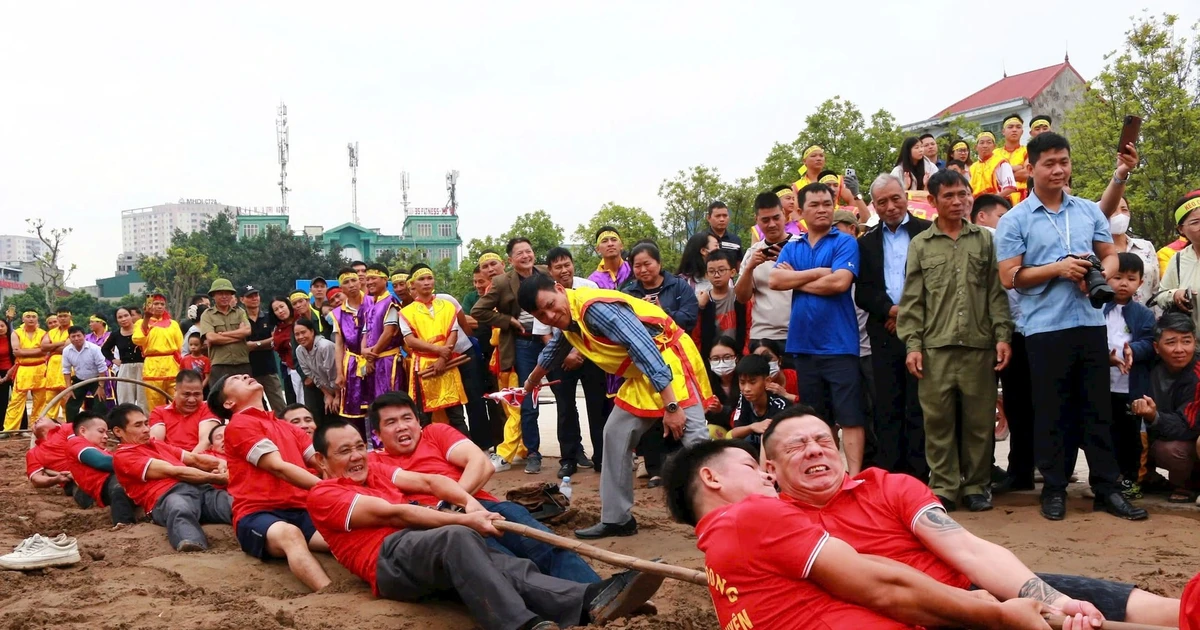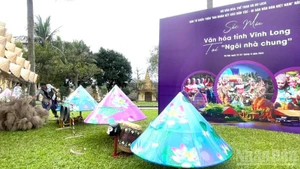A study grounded in reality
Q: You have dedicated a lot of effort and time to researching and then completing a monograph on the Mother Goddesses Worship, even though there are already numerous studies on this topic. Perhaps, for you personally, there must be some strong motivation behind it?
A: Yes, indeed. I researched the Mother Goddesses Worship with a deep passion and a drive to contribute to affirming the positive values of our national culture. During my doctoral studies, I worked on a thesis titled “Customs and Traditions of the Vietnamese as Reflected in Proverbs and Folk Songs (in Family Relations),” which was later published as a book by the Su that (Truth) National Political Publishing House under the title “Proverbs and folk songs about family relations” in 2004.
When Worship of Mother Goddesses of the Three Realms was recognised by UNESCO as an Intangible Cultural Heritage of Humanity, my interest in this topic grew even more. Although the practice of Mother Goddess Worship has become widespread, there are still many people who do not fully understand this belief. This has led to some individuals exploiting and commercialising the practice for personal gain inappropriately.
Therefore, a comprehensive study is needed to help the community understand Mother Goddess Worship correctly and appreciate its profound values.
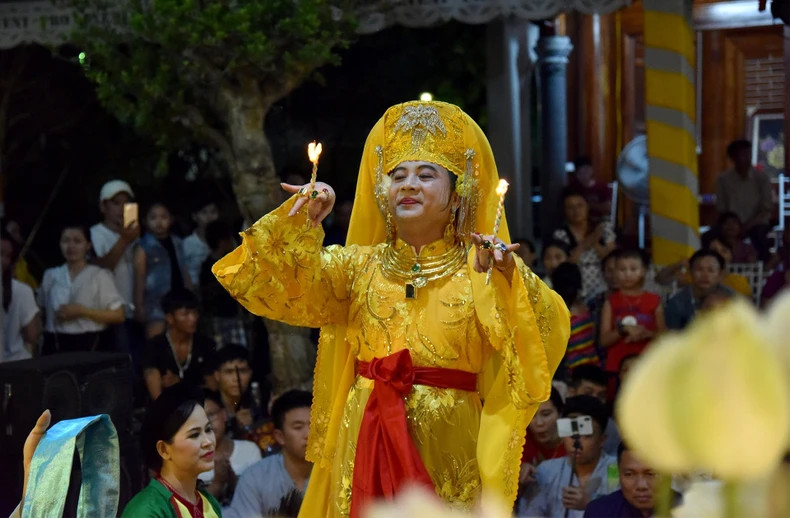 |
| The ritual of "hau dong" (spirit mediumship) is an essential part of the worship of Mother Goddesses. (Photo: DANG KHOA) |
Q: Could you share with readers some memorable stories or experiences you had personally throughout each step of your research?
A: I had the chance to attend many "hau dong" ceremonies and events honouring practitioners of the Mother Goddess Worship. Through conversations with mediums and ritual performers, I gained a deeper understanding of their thoughts, wishes, and the fascinating stories related to their ritual practices. Additionally, organising some of these events allowed me to witness both successes and organisational challenges, which provided important insights for my research.
This experience not only brought me closer to the reality of the practice but also offered many valuable lessons, helping me understand the subtle and profound aspects of the Mother Goddess Worship. Many people often only recognise this belief through the "hau dong" ritual, while its value is also integrated into various components such as legends, ritual songs, prayers, paintings, statues, and ceremonial arrangements.
Q: Given this rich practical experience, have you had to make careful considerations when choosing your research methods?
A: I approached the study from a cultural perspective and used an interdisciplinary research method, primarily involving cultural studies, cultural anthropology, and cultural sociology. I focused not only on theory but also on the practical aspects of the belief system. I placed people, particularly the practitioners of "hau dong", at the centre of my research.
Throughout history, including during feudal times and wars, there were periods when "hau dong" activities were banned. Despite this, some artisans actively preserved and continued the practice, passing it down through generations, thus maintaining a continuous tradition of the Mother Goddess Worship. Ensuring standards in the practice of this belief system has also helped limit negative behaviours and commercialisation.
Through this approach, I gained a deeper understanding of the cultural and spiritual values of the Mother Goddess worship, as well as how it is practiced and transmitted through generations. My interactions and experiences with mediums and ritual performers allowed me to develop a comprehensive and vivid picture of this belief system. I hope my work will help readers gain a clearer and more complete understanding of this precious cultural heritage.
Many "layers" need to be explored.
Q: In light of this discussion, we observe that in our cultural tradition, there is a reality in which people both revere and admire the image of women/mothers/mother goddesses, both spiritually and in daily life, yet it seems there is still an acceptance of a lack of complete equality. Could you share your insights on this?
A: The phenomenon of both revering and admiring women while sometimes not achieving full equality reflects the diversity and complexity of Vietnamese culture. Vietnamese culture is not only rooted in indigenous traditions but has also been profoundly influenced by various other cultures, including Chinese culture. A characteristic of ancient Chinese culture was its patriarchal nature. After a thousand years of Chinese rule and thousands of years of influence, Chinese culture has deeply permeated Vietnamese society, creating complexity in cultural practices.
As a result, in some regions and among certain groups, or in specific situations, reverence and admiration for women can be strong and enduring when traditional cultural values are expressed. However, in other cases, inequality persists. This is due to the intertwining of traditional cultural elements with influences from external cultures, leading to contradictions and diversity in how women are treated in Vietnamese society.
Q: Returning to your research work "Mother Goddess Worship – From a Cultural Perspective", one of the innovations is that the research results are not only presented in the text and images of the book but are also supplemented through QR codes, allowing readers to access videos and dynamic materials related to specific figures mentioned in the book. How did this idea come about?
A: In fact, this is not an innovation of my own but rather a result of learning from others who have applied this technology to their works. Recognising the benefits and convenience of using QR codes, I decided to incorporate this method into my book. This approach not only allows readers to access materials in an easier and more dynamic manner, it also enhances interaction and makes the content of my research more engaging and comprehensible.
Q: After the book was published, are there any areas not fully addressed, or do you have any plans for further research in the future?
A: Honestly, while I have conducted field research on the Mother Goddess Worship in many places, I have not yet had the opportunity to visit ethnic minority areas or Vietnamese communities abroad.
I will need to continue striving and researching to draw more comprehensive and in-depth theoretical insights into the culture of the Mother Goddess Worship belief system.
Thank you very much!
In addition to his work in cultural research, Dr. Pham Viet Long is the author of seven published literary works. Notably, his novel "Be troc" (Youth Publishing House, 1999), which has been reprinted three times and adapted into a four-part television series "Nhat ky chien truong" (Diary of Battlefield). He was formerly the Chief of the Office of the Ministry of Culture and Information (now the Ministry of Culture, Sports, and Tourism) and is the founder of the Institute for Cultural and Linguistic Studies (2018, now the Institute for Cultural and Development Studies).
